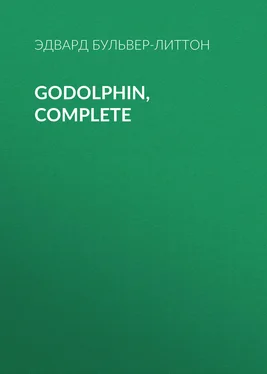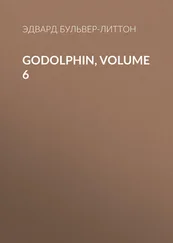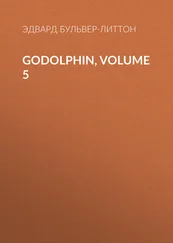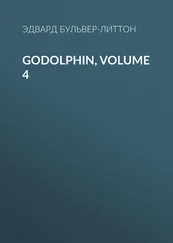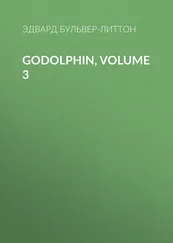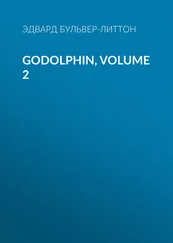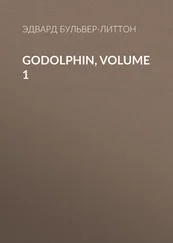Эдвард Бульвер-Литтон - Godolphin, Complete
Здесь есть возможность читать онлайн «Эдвард Бульвер-Литтон - Godolphin, Complete» — ознакомительный отрывок электронной книги совершенно бесплатно, а после прочтения отрывка купить полную версию. В некоторых случаях можно слушать аудио, скачать через торрент в формате fb2 и присутствует краткое содержание. Жанр: foreign_prose, literature_19, Европейская старинная литература, foreign_antique, на английском языке. Описание произведения, (предисловие) а так же отзывы посетителей доступны на портале библиотеки ЛибКат.
- Название:Godolphin, Complete
- Автор:
- Жанр:
- Год:неизвестен
- ISBN:нет данных
- Рейтинг книги:4 / 5. Голосов: 1
-
Избранное:Добавить в избранное
- Отзывы:
-
Ваша оценка:
- 80
- 1
- 2
- 3
- 4
- 5
Godolphin, Complete: краткое содержание, описание и аннотация
Предлагаем к чтению аннотацию, описание, краткое содержание или предисловие (зависит от того, что написал сам автор книги «Godolphin, Complete»). Если вы не нашли необходимую информацию о книге — напишите в комментариях, мы постараемся отыскать её.
Godolphin, Complete — читать онлайн ознакомительный отрывок
Ниже представлен текст книги, разбитый по страницам. Система сохранения места последней прочитанной страницы, позволяет с удобством читать онлайн бесплатно книгу «Godolphin, Complete», без необходимости каждый раз заново искать на чём Вы остановились. Поставьте закладку, и сможете в любой момент перейти на страницу, на которой закончили чтение.
Интервал:
Закладка:
And all the woman was in Constance’s cheek, as she listened. That cheek, how richly was it dyed! Her eyes drooped; her bosom heaved. How every word in those broken sentences sank into her heart! never was a tone forgotten. The child may forget its mother, and the mother desert the child: but never, never from a woman’s heart departs the memory of the first confession of love from him whom she first loves! She lifted her eyes, and again withdrew them, and again gazed.
“This must not be,” at last she said; “no, no! it is folly, madness in both!”
“Not so; nay, not so!” whispered Godolphin, in the softest notes of a voice that could never be harsh. “It may seem folly—madness if you will, that the brilliant and all-idolized Miss Vernon should listen to the vows of so lowly an adorer: but try me—prove me, and own—yes, you will own some years hence, that that folly has been happy beyond the happiness of prudence or ambition.”
“This!” answered Constance, struggling with her emotions; “this is no spot or hour for such a conference. Let us meet to-morrow—the western chamber.”
“And the hour?”
“Twelve!”
“And I may hope—till then?”
Constance again grew pale; and in a voice that, though it scarcely left her lips, struck coldness and dismay into his sudden and delighted confidence, answered,
“No, Percy, there is no hope!—none!”
CHAPTER XVIII
The western chamber was that I have mentioned as the one in which Constance usually fixed her retreat, when neither sociability nor state summoned her to the more public apartments. I should have said that Godolphin slept in the house; for, coming from a distance and through country roads, Lady Erpingham had proffered him that hospitality, and he had willingly accepted it. Before the appointed hour, he was at the appointed spot.
He had passed the hours till then without even seeking his pillow. In restless strides across his chamber, he had revolved those words with which Constance had seemed to deny the hopes she herself had created. All private and more selfish schemes or reflections had vanished, as by magic, from the mind of a man prematurely formed, but not yet wholly hardened in the mould of worldly speculation. He thought no more of what he should relinquish in obtaining her hand; with the ardour of boyish and real love, he thought only of her. It was as if there existed no world but the little spot in which she breathed and moved. Poverty, privation, toil, the change of the manners and habits of his whole previous life, to those of professional enterprise and self-denial;—to all this he looked forward, not so much with calmness as with triumph.
“Be but Constance mine!” said he again and again; and again and again those fatal words knocked at his heart, “No hope—none!” and he gnashed his teeth in very anguish, and muttered, “But mine she will not—she will never be!”
Still, however, before the hour of noon, something of his habitual confidence returned to him. He had succeeded, though but partially, in reasoning away the obvious meaning of the words; and he ascended to the chamber from the gardens, in which he had sought, by the air, to cool his mental fever, with a sentiment, ominous and doubtful indeed, but still removed from despondency and despair.
The day was sad and heavy. A low, drizzling rain, and labouring yet settled clouds, which denied all glimpse of the sky, and seemed cursed into stagnancy by the absence of all wind or even breeze, increased by those associations we endeavour in vain to resist, the dark and oppressive sadness of his thoughts.
He paused as he laid his hand on the door of the chamber: he listened; and in the acute and painful life which seemed breathed into all his senses, he felt as if he could have heard,—though without the room,—the very breath of Constance; or known, as by an inspiration, the presence of her beauty. He opened the door gently; all was silence and desolation for him—Constance was not there!
He felt, however, as if that absence was a relief. He breathed more freely, and seemed to himself more prepared for the meeting. He took his station by the recess of the window: in vain—he could rest in no spot: he walked to and fro, pausing only for a moment as some object before him reminded him of past and more tranquil hours. The books he had admired and which, at his departure, had been left in their usual receptacle at another part of the house, he now discovered on the tables: they opened of themselves at the passages he had read aloud to Constance: those pages, in his presence, she had not seemed to admire; he was inexpressibly touched to perceive that, in his absence, they had become dear to her. As he turned with a beating heart from this silent proof of affection, he was startled by the sudden and almost living resemblance to Constance, which struck upon him in a full-length picture opposite—the picture of her father. That picture, by one of the best of our great modern masters of the art, had been taken of Vernon in the proudest epoch of his prosperity and fame. He was portrayed in the attitude in which he had uttered one of the most striking sentences of one of his most brilliant orations: the hand was raised, the foot advanced, the chest expanded. Life, energy, command, flashed from the dark eye, breathed from the dilated nostril, broke from the inspired lip. That noble brow—those modelled features—that air, so full of the royalty of genius—how startlingly did they resemble the softer lineaments of Constance!
Arrested, in spite of himself, by the skill of the limner, and the characteristic of the portrait Godolphin stood, motionless and gazing, till the door opened, and Constance herself stood before him. She smiled faintly, but with sweetness as she approached; and seating herself, motioned him to a chair at a little distance. He obeyed the gesture in silence.
“Godolphin!” said she, softly. At the sound of her voice he raised his eyes from the ground, and fixed them on her countenance with a look so full of an imploring and earnest meaning, so expressive of the passion, the suspense of his heart, that Constance felt her voice cease at once. But he saw as he gazed how powerful had been his influence. Not a vestige of bloom was on her cheek: her very lips were colourless: her eyes were swollen with weeping; and though she seemed very calm and self-possessed, all her wonted majesty of mien was gone. The form seemed to shrink within itself. Humbleness and sorrow—deep, passionate, but quiet sorrow—had supplanted the haughtiness and the elastic freshness of her beauty. “Mr. Godolphin,” she repeated, after a pause, “answer me truly and with candour; not with the world’s gallantry, but with a sincere, a plain avowal. Were you not—in your unguarded expressions last night—were you not excited by the surprise, the passion, of the moment? Were you not uttering what, had you been actuated only by a calm and premeditated prudence, you would at least have suppressed?”
“Miss Vernon,” replied Godolphin, “all that I said last night, I now, in calmness, and with deliberate premeditation, repeat: all that I can dream of happiness is in your hands.”
“I would, indeed, that I could disbelieve you,” said Constance, sorrowfully; “I have considered deeply on your words. I am touched—made grateful—proud—yes, truly proud—by your confessed affection—but—”
“Oh, Constance!” cried Godolphin; in a sudden and agonized voice—and rising, he flung himself impetuously at her feet—“Constance! do not reject me!”
He seized her hand: it struggled not with his. He gazed on her countenance: it was dyed in blushes; and before those blushes vanished, her agitation found relief in tears, which flowed fast and full.
Читать дальшеИнтервал:
Закладка:
Похожие книги на «Godolphin, Complete»
Представляем Вашему вниманию похожие книги на «Godolphin, Complete» списком для выбора. Мы отобрали схожую по названию и смыслу литературу в надежде предоставить читателям больше вариантов отыскать новые, интересные, ещё непрочитанные произведения.
Обсуждение, отзывы о книге «Godolphin, Complete» и просто собственные мнения читателей. Оставьте ваши комментарии, напишите, что Вы думаете о произведении, его смысле или главных героях. Укажите что конкретно понравилось, а что нет, и почему Вы так считаете.
